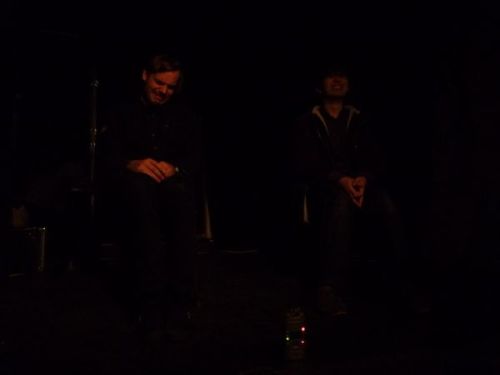killed in cars
Mattin / Taku Unami - Distributing Vulnerability to the Affective Classes (Desetxea, 2010)
I doubt I’ll ever be willing to sit through this album again, nor would I
recommend repeated listens to anyone. Not because I disliked it,
though I can see some really hating this album–both for its aesthetics
and “pretensions”–, but because it is so grating and unsettling.
Actually, I don’t even know how I’d go about comparing it to most albums
I’ve ever heard.
During December of last year, Mattin and Taku
Unami cried for an hour at Rigoletto in Paris. This album is the
recording of that event. The duo set out to raise a tactile sense of
discomfort, an awareness of “affective strangeness,” of vulnerability. I
cannot comment on whether this live performance achieved this goal;
however, I can only begin to imagine how uncomfortable it would be to
watch two grown men cry at you, a paying customer who must sit silently,
legs crossed, wondering if everyone around you is equally as
disassociated. It doesn’t translate exactly for home listening, with
some of the effect likely lost. Still though, I think I experienced the
punchline.
My lone play came in my office today with the door
shut. I was terrified of my coworkers hearing the cries coming from my
space and then subsequently having to defend it as music. I’ve had one
too many arguments in vain about John Cage with them, so I knew any
defense of Distributing Vulnerability to the Affective Classes
would fall on deaf ears. Thus I was forced to keep my finger near the
volume to prevent the moaning from seeping through the thin walls of my
office. As I sat there in fear of drawing attention to myself, I began
to consider how well I could tolerate a live performance of this–could I
bare to sit next another being as I hid my insecurities over what I was
viewing? I empathized with their condition, their uncertainties. Once
fully ajar, I experienced a heightened sense of awareness of the
coworkers passing by my door, of the concert last December I never
attended, of the concert-goers I never met, and of Mattin and Taku. I
was a member of the affective class.
